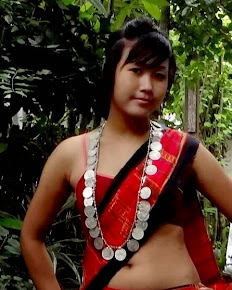Delegates from numerous Chakma Political Parties and Organizations from Arunachal Pradesh, Tripura, Assam and Mizoram were present. Interestingly, many Village Council leaders, intellectuals, service holders, students and women have also turned up to encourage the gathering.
The Convention was being organized by all the Chakma NGOs and facilitated by the Barak Valley Chakma Students' Association (BVCSA), Silchar.
The Convention was divided into two Chapters:
Day 1: In the first day, all the problems of the Chakmas in their respective states were discussed.
The first day of the Conference was concluded successfully at around 7:00 pm.
Day 2: In the second day, the Conference was on full swing. Delegates from Arunachal Pradesh, Tripura, Assam and Mizoram and Representatives of their Students' Organizations had delivered their presentations in the 1st half of the day. In the 2nd half, Panel discussion took place followed by the formation of a National Level Chakma Organization.
After elaborate deliberation, the following issues have been short listed for Panel discussion. They are-
1. Citizenship issues in Arunachal Pradesh.
2. Single Administrative Unit in Mizoram with reference to Rajya Sabha Petition Committee.
3. Common Customary Laws.
4. Socio-economic Development in Tripura.
5. Promotion of Chakma Language.
6. Challenges of the Chakmas in Assam.
7. Religious Conflict and its Impact.
8. CHT problems with reference to JSS-UPDF conflict.
9. Award of CHT in Pakistan in 1947 and its after-effect on Chakmas in the Subcontinent (erstwhile Chakma Kingdom).
CENTRAL EXECUTIVE COMMITEE FORMATION:
After a full day Panel discussion on various issues, the All India Chakma Convention was concluded with the formation of an Organization i.e. CHAKMA NATIONAL COUNCIL OF INDIA (CNCI) with its Headquarters at New Delhi. The Council will be supported by various intellectuals and Political representatives of the Chakmas.
An ad-hoc Central Executive Committee was formed and Dangu Aniradda Chakma from Tripura was unanimously selected as the President, Dangu Larma Hemantalal Chakma as the General Secretary, Dangu Jagat Jyoti Chakma as the Treasurer, Dangu Arunjit Chakma as Communication Secretary, Dangu Durjyo Dhan as Asst. Secretary and Dangu Pralad Chakma as Head of Arunachal Pradesh state, Dangu Surjyasen Chakma as Head of Mizoram state, Dangu Santosh Chakma as Head of Tripura state, Dangu Jagat Santa Chakma as Head of Assam state.
Executive Members are Dangu Niranjan Chakma, Dangu Kinomohan Chakma, Dangu Pandid Bihari Chakma and Dangu Somiral Chakma.
Read more: http://www.mizonews.net/mizoramnews/all-india-chakma-convention-held-in-silchar/





















